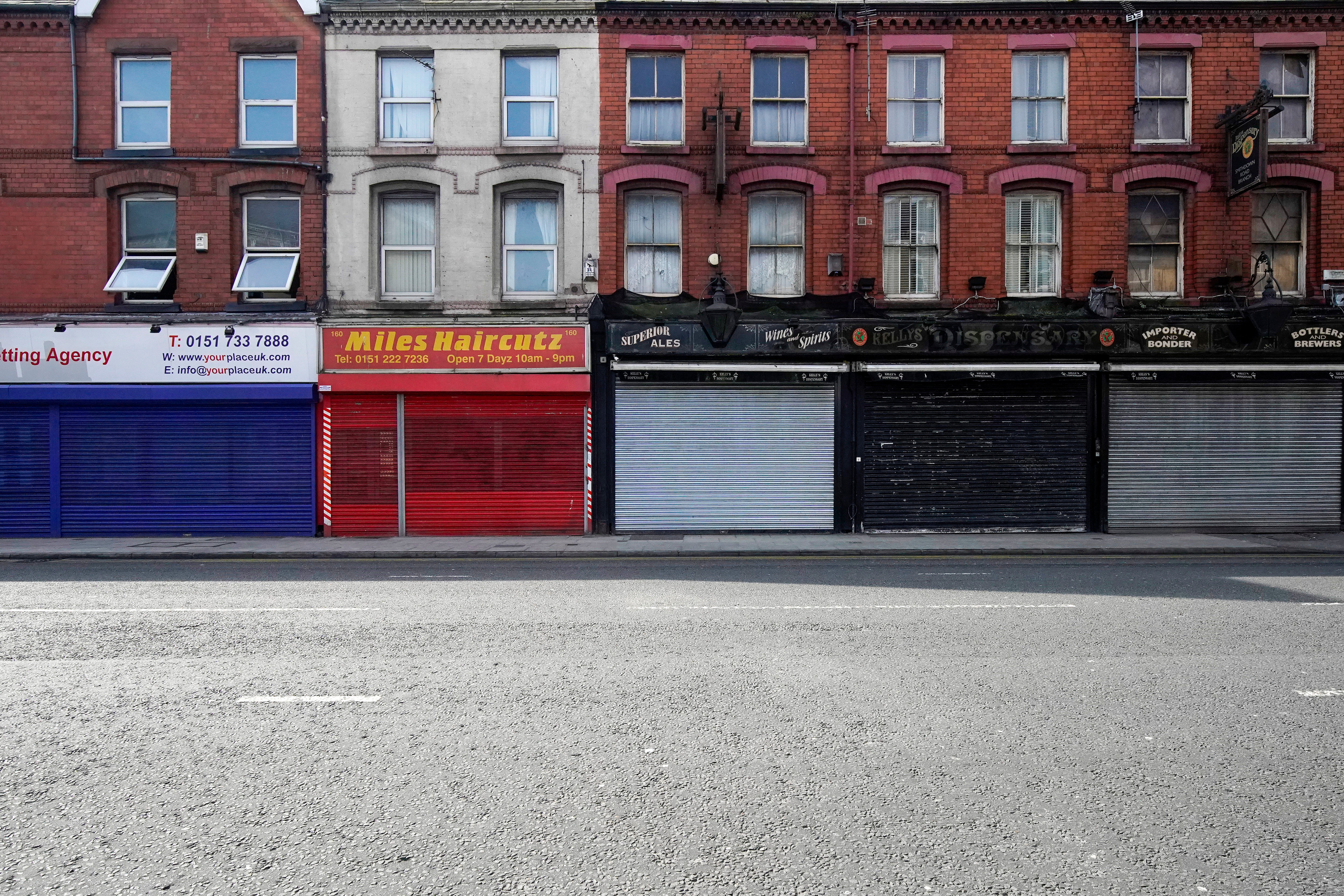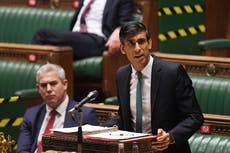UK economy shrank by 2.6 per cent in November
Economists have warned that the UK may be heading for a double-dip recession

Your support helps us to tell the story
From reproductive rights to climate change to Big Tech, The Independent is on the ground when the story is developing. Whether it's investigating the financials of Elon Musk's pro-Trump PAC or producing our latest documentary, 'The A Word', which shines a light on the American women fighting for reproductive rights, we know how important it is to parse out the facts from the messaging.
At such a critical moment in US history, we need reporters on the ground. Your donation allows us to keep sending journalists to speak to both sides of the story.
The Independent is trusted by Americans across the entire political spectrum. And unlike many other quality news outlets, we choose not to lock Americans out of our reporting and analysis with paywalls. We believe quality journalism should be available to everyone, paid for by those who can afford it.
Your support makes all the difference.The UK is facing a double-dip recession after the economy shrank 2.6 per cent in November, when England went into its second national lockdown and restrictions were tightened across much of the rest of the UK.
November’s decline in output followed an increase of 0.6 per cent in October – the sixth consecutive month of growth at that point.
It was the first drop since April, at the start of the pandemic, when gross domestic product plunged 25 per cent in comparison with the same month in 2019.
The latest official figures were not as bad as had been feared, with predictions of a 4.6 per cent decline for November, but economists have warned that the UK is likely to enter a double-dip recession if the current lockdown continues for any length of time.
The November lockdown and closure of businesses in hospitality – such as pubs, restaurants, shops and hairdressers – meant that that sector shrank by 3.4 per cent. The Office for National Statistics reported that the services sector is now 9.9 percent below its level in February last year.
The ONS director for economic statistics, Darren Morgan, said: “The economy took a hit from restrictions put in place to contain the pandemic during November, with pubs and hairdressers seeing the biggest impact.
"However, many businesses adjusted to the new working conditions during the pandemic, such as widespread use of click and collect as well as the move online.”
Mr Morgan said the economy shrank less in the second lockdown because schools, manufacturing and construction all remained open.
He added: “Car manufacturing, bolstered by demand from abroad, housebuilding and infrastructure grew and are now all above their pre-pandemic levels.”
In spite of this, the UK economy is now 8.5 per cent smaller than it was last February, before the first coronavirus lockdown.
The production sector, which includes manufacturing, fell by 0.1 per cent in November, remaining 4.7 per cent below the February 2020 level. The construction sector grew 1.9 per cent in November 2020, recovering to 0.6 per cent above its level in February 2020.
The figures will add to pressure on the chancellor, Rishi Sunak, to extend support for hard-hit businesses and households.
The backbench Northern Research Group, including many of the Conservative MPs who took seats in Labour's “red wall” in the 2019 election, wrote to Mr Sunak this week to emphasise that lockdown controls had hit disadvantaged areas the hardest.
In a submission to the chancellor ahead of his Budget in March, the group said families and businesses in the north of England were facing a series of financial “cliff edges”, with existing support schemes set to end in the coming weeks and months.
Dean Turner, an economist at UBS Global Wealth Management, said the outlook remained “challenging”, with the economy expected to contract 1.5 per cent in the final quarter of 2020.
“Looking ahead, even tighter Covid-19 restrictions and Brexit disruption points to the economy contracting yet again in the first quarter of 2021.
“However, the situation is vastly different to last spring, as firms and households are better prepared for the current restrictions, which means that any economic weakness is likely to be significantly less.
“Beyond this, the economy should see a noticeable improvement. The recovery we were hoping for early this year hasn’t been destroyed by the recent tightening of lockdown restrictions, merely delayed.”



Join our commenting forum
Join thought-provoking conversations, follow other Independent readers and see their replies
Comments